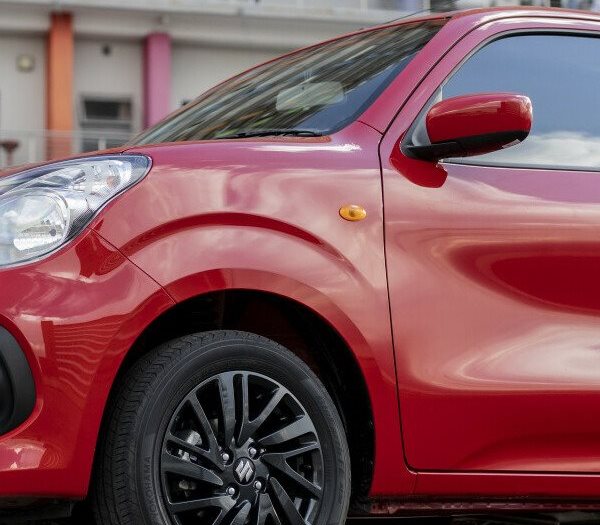

**Factors Influencing Suzuki’s Emphasis on the Compact Car Market in Pakistan**
Suzuki has established itself as a leading entity in Pakistan’s automotive sector, especially in the compact car arena. With popular models such as the Suzuki Mehran, Alto, Wagon R, and Cultus, the brand has carved out a significant spot in the market. But what propels Suzuki’s targeted strategy towards small cars in Pakistan? A mix of economic, demographic, and infrastructural factors plays a role in this choice. This article delves into the main reasons for Suzuki’s concentration on compact vehicles within the Pakistani market.
### 1. **Cost-Effectiveness and Sensitivity to Pricing**
One of the key motivations behind Suzuki’s dedication to small cars is the pricing sensitivity of the average consumer in Pakistan. With a substantial portion of the population belonging to lower- and middle-income groups, cost-effectiveness becomes a critical factor influencing buying choices. Compact cars typically have a lower price tag than larger vehicles, not only regarding the initial cost but also for ongoing maintenance expenses.
Suzuki has capitalized on this trend by providing affordable models that appeal to first-time buyers and families in search of cost-efficient transportation. The triumph of models such as the Suzuki Mehran and Alto underscores the brand’s insights into local consumer preferences.
### 2. **Economy on Fuel Consumption**
Rising fuel prices in Pakistan are often unstable, making fuel efficiency a vital concern for vehicle purchasers. Smaller cars usually deliver better fuel economy than their larger counterparts, rendering them more appealing to budget-conscious consumers. Suzuki’s compact options, like the Alto and Cultus, are recognized for their excellent mileage, which further boosts their attractiveness in a market where operational costs are a key factor.
### 3. **Rapid Urbanization and Increasing Traffic Issues**
Major urban areas in Pakistan, including Karachi, Lahore, and Islamabad, are undergoing swift urban growth, resulting in heightened traffic congestion and a scarcity of parking spaces. Compact cars offer better maneuverability and easier parking, making them well-suited for city life. Suzuki’s small models are adept at navigating tight streets and busy roads, enhancing their practicality for urban residents.
### 4. **Domestic Manufacturing and Spare Parts Accessibility**
Through its subsidiary, Pak Suzuki Motor Company, Suzuki has built a robust local manufacturing framework in Pakistan. This capability permits the company to minimize costs and guarantee a reliable supply of spare parts. The extensive availability of components and service facilities simplifies maintenance for Suzuki vehicles, further solidifying their popularity.
By concentrating on small cars, Suzuki can optimize its production processes and take advantage of economies of scale, aiding in maintaining competitive pricing in a market sensitive to costs.
### 5. **Government Regulations and Import Limitations**
Historically, the Pakistani government has enacted policies favoring domestic manufacturing while discouraging the import of completely built units (CBUs) through high duties and taxes. Such policies have propelled auto manufacturers like Suzuki to invest in local production, especially for smaller vehicles that are more feasibly assembled within the country.
Moreover, government incentives aimed at small and fuel-efficient vehicles, like reduced taxes or fees for registration, have rendered compact cars more appealing to both consumers and manufacturers.
### 6. **Brand Loyalty and Market Heritage**
With decades of presence in Pakistan, Suzuki has cultivated a solid brand reputation, particularly in the small car arena. Many Pakistani generations have grown up with Suzuki vehicles, resulting in substantial brand loyalty. This historical advantage gives Suzuki a competitive lead in the small car sector, where buyers tend to choose established models over new competitors.
### 7. **Minimal Competition in the Sector**
Until recently, Suzuki encountered limited competition within the small car segment. Although newer players like Kia, Hyundai, and Changan have begun penetrating the Pakistani market, Suzuki continues to maintain a strong foothold in the compact car sector. This dominance enables the company to direct its resources towards refining and broadening its small car offerings.
### Conclusion
Suzuki’s strategic emphasis on the small car sector in Pakistan stems from a blend of economic realities, consumer preferences, and infrastructural constraints. By providing affordable, fuel-efficient, and pragmatic vehicles, Suzuki has successfully positioned itself as the preferred brand for small cars in the nation. With a profound understanding of the local market and a solid manufacturing foundation, Suzuki is poised to sustain its leadership in this sector for the foreseeable future.






